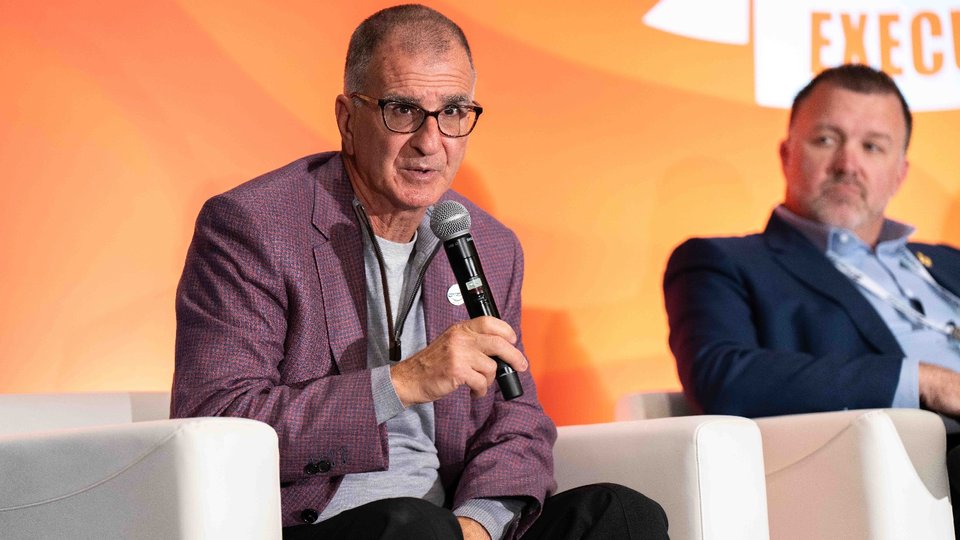Fast Casual Executive Summit
Preventing restaurant legal landmines
A panel at the Fast Casual Executive Summit, held in Denver examined how restaurants can avoid legal landmines.

November 18, 2024 by Bradley Cooper — Editor, ATM Marketplace & Food Truck Operator
No one wants to deal with a lawsuit, but when it comes to food: legal issues abound. These include everything from disputes, food safety, labor issues, real estate and more. A panel at the Fast Casual Executive Summit, held in Denver from Oct. 13 to 15 examined how restaurants can avoid legal landmines.
Michelle Harden, COO and managing partner at Messner Reeves moderated the panel with Louis Basile, founder/licensee at Wildflower; Troy Hooper, CEO at Pepper Lunch; Amy Huff, partner at Messner Reeves; and Susan Taylor, president and CEO at Juice It Up!
Firstly, the panelists spoke to the importance of getting a lawyer, with Taylor saying restaurants should "always have a lawyer."
Huff agreed, pointing to the importance of having a lawyer review leases. "Some people see attorneys reviewing your lease as a luxury rather than a necessity, but I implore you to do so. Nine times out of 10 something that happens down the line could have been avoided and it will be much more expensive."
Basile said, "it's worth every dime" to have a good lawyer.
Looking specifically at leases, Huff said to keep your non-negotiables in mind and "know your worth and don't be afraid to walk away."
Hooper added that you need to find the right lawyer to handle your needs, whether that be labor, franchising or lease issues. "Not all lawyers and not all law firms are created equal."
This can take the form of having multiple lawyer firms. Although some might think one lawyer would be best, Basile said this can be an issue as it can get complicated quickly and if the relationship sours with the law firm, it can be become very difficult for the restaurant.
One major topic covered was how restaurants can handle food safety legal issues. Taylor said the most important element is visibility of the supply chain.
"We have clear traceability back to the fields they come from. We have one distribution house. Any fresh produce we have is inspected," Taylor said. She said if there is an outbreak due to their visibility, they aren't liable. However, when franchisees go outside of the supply chain to save costs, they can become liable in the event of an outbreak.
This extends as well to food allergens. Hooper said that because his restaurant serves a lot of raw food(sushi) this is especially important.
"You cannot make a big enough sign about the nuts, the powders and where stuff is made. You have to make it very clear what you are serving," Hooper said.
The panelists emphasized the importance of keeping accurate records on food and food safety, such as recording when a refrigerator goes out of order and when it is fixed.
"Depending on your size, some of this may seem incredibly daunting, but you just got to start," Basile said. If you have multiple vendors or suppliers delivering into your restaurant, you need to ask them their process of what they do if there's a recall. On the food safety side, you can get a digital system to keep those records. If you can't afford that, you have to have a paper system."
Another topic was how restaurants can handle crisis management, which goes beyond just food safety. Basile recommended that often the best tip is just to tell the truth in times of crisis.
"You do need to sincerely apologize," Basile said. "That goes a long way to mitigating any crisis. If you start trying to spin a crisis, it gets ugly. I'm not smart enough to remember the lie I told an hour ago, just tell the truth.
Taylor pointed to the importance of developing a crisis management workbook.
This extends to employee relations as well, which can quickly get ugly with franchisees who may have no HR experience.
Taylor said it can help by using third-party HR tools and Basile agreed, pointing to their HR email service. If someone has an issue with another employee or suspects harassment, they can send an email.
From there, the person is suspended with pay while Wildflower investigates the issue.
Hooper said that no matter how much training you do with employees, they aren't going to be able to handle all the situations that come their way. Employees need resources and they need to know those resources are impartial and fair.
"If you're playing favorites, you're asking for trouble," Basile said.
Hooper added the importance of having both employment insurance and attorneys. He said that other attorneys are smart and will often quickly file lawsuits just to get a restaurant to pay $25,000 for their insurance deductible to avoid going to court.
Ultimately, with all of these issues, Huff said the most important element is not to ignore problems and hope they go away.
"Don't welcome problems but don't be afraid of them either," Huff said.







